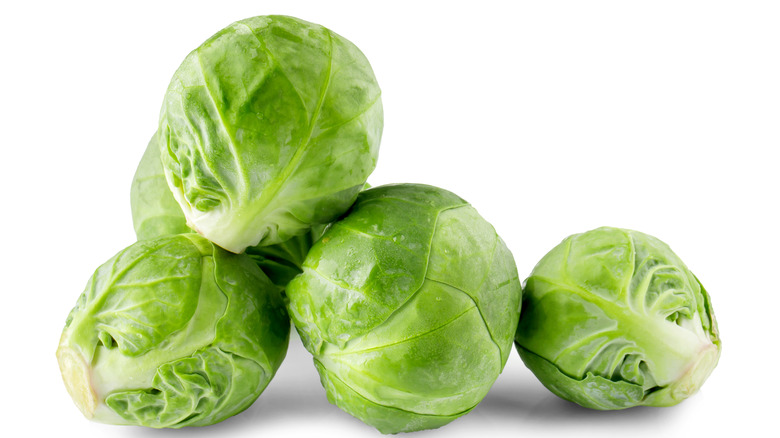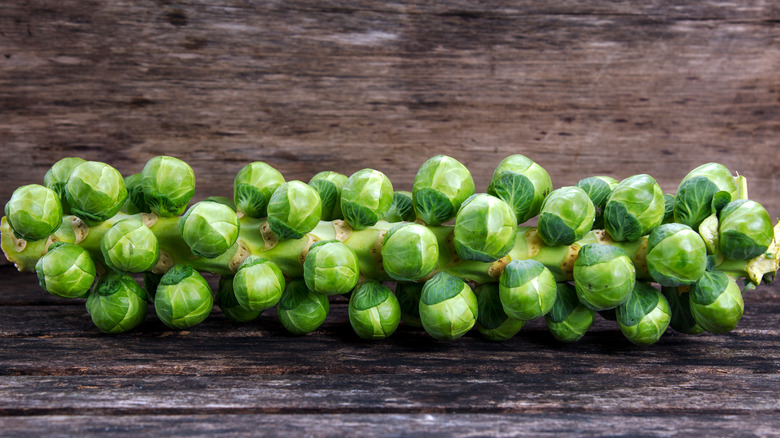Are Brussels Sprouts Actually Just Baby Cabbages?
Brussels sprouts face serious scrutiny among the masses, dubbed one of America's most hated vegetables, as reported by Fox News. But if you wince at the taste of sprouts, the University of Derby found that it could be due to your genetic ability to taste a bitter compound called phenylthiocarbamide (PTC), that's similar to the compounds in cruciferous veggies. While Brussels sprouts boast similar compounds and an equally leafy appearance to cabbages, it's fair to wonder whether these adorable, leafy orbs are actually just baby cabbages.
Selective breeding can account for why these bite-sized morsels exist. A descendant of wild Mediterranean kale, Vox explains that farmers bred the vegetable to possess certain traits like large leaves, thick stems, and small heads. The results of cross-breeding led to different cultivars of the same species as cabbage, which then paved the way for sprouts.
Unsurprisingly, Britannica reports that Brussels sprouts originated from Brussels, Belgium. Gaining traction in Europe, the sprouts were eventually introduced to the U.S., where production now thrives in New York and California, claims the USDA.
Brussels sprouts aren't baby cabbages
Brussels sprouts and the cabbage are, in fact, two very different vegetables, despite both hailing from the Brassica oleracea family. Fine Dining Lovers explains that buds differ completely in composition, harvesting patterns, nutrition, and taste.
According to Greatist, cabbages produce a large head that grows close to the ground, unlike Brussels sprouts that form clusters of buds along a tall, fibrous stalk. Although both cabbage and Brussels sprouts are in season from late fall through to early spring, Farmer's Almanac explains that sprouts take significantly longer to harvest than cabbage.
While both vegetables are good sources of nutrients, LiveStrong reveals that the Brussels sprout is a superfood superstar thanks to higher amounts of potassium, phosphorus, magnesium, folic acid, and vitamins A, C, and K when compared to its larger relative, the cabbage.
Although cruciferous vegetables tend to have pronounced aromas and a partially bitter flavor, there are also distinctions. For example, cabbage can be a bit peppery and earthy, depending on the variety, notes The Kitchn. On the other hand, Brussels sprouts are milder with sweet and delicately nutty flavors, explains Insanely Good Recipes—tempted to give them another chance now?

